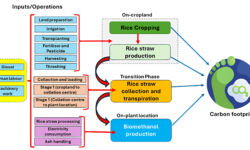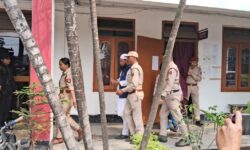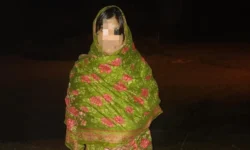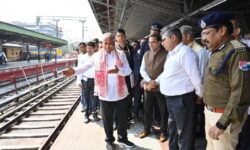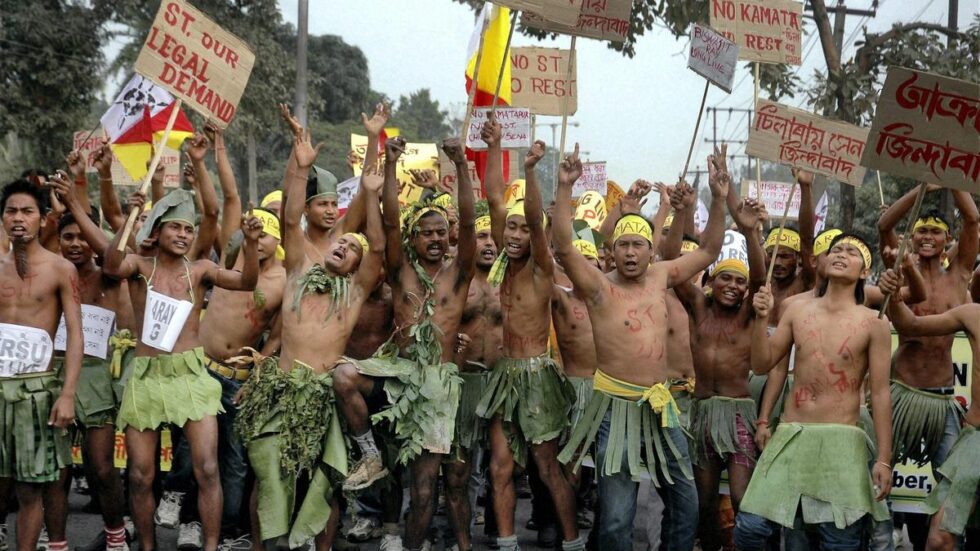
GUWAHATI
Ahead of Home Minister Amit Shah’s three-day visit to Assam on March 14, 2025, the Koch-Rajbongshis have refreshed their demand for Scheduled Tribe (ST) status.
One of the largest communities living mostly in areas straddling western Assam and northern West Bengal, the Koch-Rajbongshis are one of six ethnic groups seeking ST status for decades. The others are Adivasis, Ahoms, Chutias, Mataks, and Morans.
On Saturday (March 8, 2025) evening, leaders of the Koch-Rajbongshi Sanmilita Joutha Mancha submitted a 15-point memorandum to the Bharatiya Janata Party’s Assam unit president Dilip Saikia highlighting their demands.
The ST status for the community topped the list of demands followed by the “re-establishment of the historic Kamatapur State” and the creation of a Chilarai Regiment in the armed forces in honour of the community’s legendary warrior.
The Mancha is an umbrella body comprising 12 organisations of the Koch-Rajbongshi community, which once ruled large swathes across present-day Assam, West Bengal, and Bangladesh.
“We have urged the BJP to facilitate a tripartite meeting with the Central and State governments by April 30, 2025. We have also warned of protests if our community is exploited for electoral gains during the 2026 Assembly elections, as has been the case in the past,” a spokesperson of the Mancha said.
The Koch-Rajbongshis and the other five communities demanding the ST tag currently enjoy Other Backward Classes status. The share in Assam’s quota pie for the OBCs is 27% while those for ST (Plains), Scheduled Caste and ST (Hills) are 10%, 7%, and 5% respectively.
The ST demand has been a major issue for almost three decades now. The BJP had promised the six communities tribal status before the 2014 Lok Sabha elections.
Other tribes wary
The existing ST communities in Assam are opposed to any move to grant tribal status to the six ethnic groups. In 2011, a Coordination Committee of the Tribal Organisations of Assam representing 10 tribes – Bodo, Rabha, Tiwa, Karbi, Dimasa, Mishing, Sonowal, Hajong, Garo, and Deuri – wrote to the Singla Committee saying that the proposal to grant ST status to six “advances and populous OBC communities” was “a conspiracy to destroy/exterminate the existing STs of Assam”.
The Centre set up the committee headed by Mahesh Kumar Singla, then the Special Secretary (Internal Security) in the Home Ministry, on March 1, 2011, to look into the demand of the six communities and its fallout.
“These six communities are educationally and economically advanced and more in number, and there is no way the existing ST communities can compete with these advanced groups. Once they get ST status, the existing communities would be wiped out in elected bodies and from education and jobs,” the CCTOA said, pointing out that the land rights of the existing ST communities would also be usurped.
The CCTOA also said the Registrar General of India rejected the six communities’ demands eight times between 1981 and 2006.
The Centre did grant ST status to the Koch-Rajbongshis for six months in 1996. It was revoked after protests when it was found that 33 of 42 medical seats and 17 of 21 engineering seats apart from other courses reserved for STs had been taken away by the Koch-Rajbongshis.




